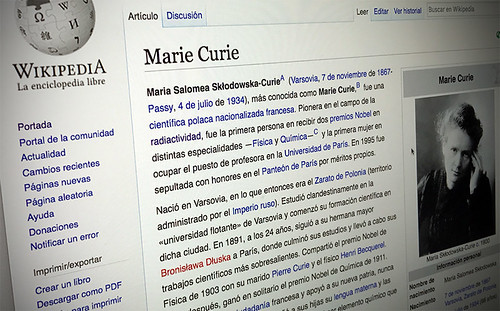Welcome to episode 230 (“Don’t Shame WikiPedians”) of the EdTech Situation Room from September 9, 2021, where technology news meets educational analysis. This week Jason Neiffer (@techsavvyteach) and Wesley Fryer (@wfryer) discussed Google’s new ChromeOS notetaking web app, Cursive, Microsoft’s addition of “Reading” to MS Teams, and Windows 11 CPU requirements for older computers. Apple’s upcoming September 14th iPhone event and Twitter powered notification service, a call to stop “source shaming” the use of WikiPedia in academic research, and the regulatory effort in Germany to required 7 years of smartphone operating system updates were highlighted. Also on the Google front, an op-ed advocating for a ‘fix’ to auto-installs on new Chromebooks, a UK study highlighting the high frequency of extremist views among students in schools, and a report revealing continued problems with AI-powered facial recognition for black men were discussed. Additional topics included the start of “Super Follower Subscriptions” on Twitter, the expected dramatic reduction in price for Starlink Internet connectivity, Starlink’s projected expansion of production, and Logitech’s new technology to improve security for wireless computer peripherals. Geeks of the Week included the recent Angry Planet podcast episode, “Space: Final Frontier or Billionaires Playground,” the web advertising and data harvesting demo site how-i-experience-web-today.com, and the subscription-based iOS / WatchOS app, SleepWatch. Please see our shownotes for links to all these articles and resources! Our show was live streamed and archived simultaneously on YouTube Live as well as our Facebook Live page via StreamYard.com, and compressed to a smaller video version (about 100MB) on AmazonS3 using Handbrake software. Please follow us on Twitter @edtechSR for updates, and join us LIVE on Wednesday nights (normally) if you can at 10 pm Eastern / 9 pm Central / 8 pm Mountain / 7 pm Pacific or 3 am UTC. All shownotes are available on http://edtechSR.com/links. Stay savvy and safe!
Shownotes
- EdTech Situation Room Listener Survey: wfryer.me/edtechsr
- Follow @edtechSR on Twitter!
- Audio podcast feed (Subscribe with iTunes or Stitcher)
- Video version on YouTube
- Check out our video podcast feed and subscribe to our YouTube Channel (episodes also in this YouTube playlist)
- Jason Neiffer (@techsavvyteach) – blog: blog.ncce.org
- Wes Fryer (@wfryer) – wesfryer.com/after
- Microsoft Brings Reading Progress to Teams (Thurrott; 24 August 2021)
- Google’s note taking web app, Cursive, can be used on any Chromebook (XDA Developers, 6 Sept 2021)
- How to install and use Google’s new Cursive app for Chromebooks (About Chromebooks; 31 August 2021)
- Microsoft is threatening to withhold Windows 11 updates if your CPU is old (The Verge; 28 August 2021)
- Stop Source-Shaming: Acknowledge Wikipedia in the research process (American Libraries Magazine, 1 Sept 2021)
- Germany reportedly pushing EU to require 7 years of updates on Android, iOS devices (9 to 5 Google; 5 September 2021)
- Opinion: Google Needs To Fix Android App Auto-installs When Logging Into A New Chromebook (Chrome Unboxed; 25 August 2021)
- Racism, Islamophobia and conspiracy theories among extremist views witnessed in classrooms, study (Independent, 6 Sept 2021)
- Facebook apologises after algorithm puts ‘primates’ label on video of black men (Sky News, 4 Sept 2021)
- Twitter opens Super Follow subscriptions for some creators (Engadget, 1 Sept 2021)
- Cost of $499 Starlink terminal set to plunge (MS Power User; 29 August 2021)
- Starlink currently makes 5000 dishes a week, plans to boost this by “multiples” later this year (MS Power User, 8 Sept 2021)
- Logitech’s Bolt USB dongle bolsters encryption for its new wireless mice and keyboards (The Verge; 1 September 2021)
- Wes’ Geeks of the Week: Angry Planet Podcast: Space: Final Frontier or Billionaires Playground and how-i-experience-web-today.com
- Jason’s Geek of the Week: SleepWatch









